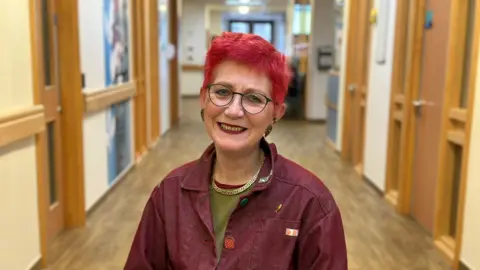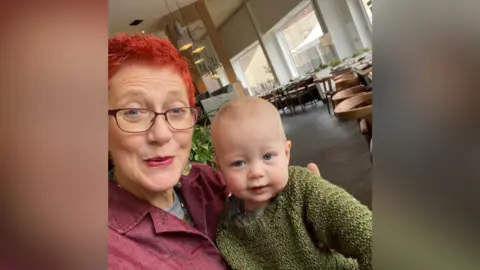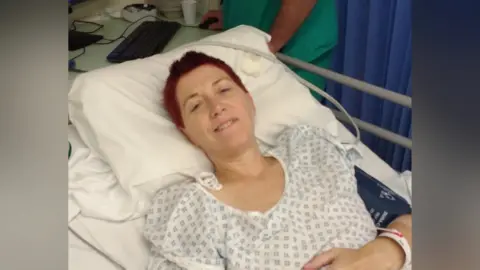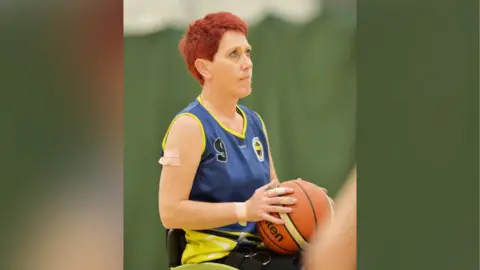'Patients must be at the centre of cancer research'
 AMELIA REYNOLDS/BBC
AMELIA REYNOLDS/BBCA woman who has lived with cancer for more than two decades has said patients must be at the centre of research - after a £173m grant was given to study the disease.
Cambridge scientists have received the money - the single largest grant ever awarded by Cancer Research UK, outside of London - to study how cancers develop, grow and spread.
Fiona Carey, 63, an advanced kidney cancer patient, was diagnosed 23 years ago and has worked with leaders at the Cambridge Biomedical Campus to ensure patients' experiences are put first.
She welcomed the funding for the Cancer Research UK Cambridge Institute, which has more than 300 scientists.
 Cancer Research UK
Cancer Research UKThe institute's director, Prof Greg Hannon, said the grant would "greatly aid the recruitment of top-tier international talent".
He said: "In a golden era for life sciences, this funding bolsters Cambridge as a major global hub for cancer research.
"Only through understanding all aspects of the disease can we prevent, detect and treat cancer so that everybody can lead longer, better lives, free from fear of cancer."
It is hoped the funding will help the institute find new ways to transform the lives of patients.
Ms Carey, who said there was no cure for her cancer, wanted to push for patients to be involved with, and have a say in, the direction of research.
 Cancer Research UK
Cancer Research UKA GP discovered a tumour, about the size of a baking potato, on Ms Carey's kidney after she had a persistent cough.
"I remember going to fireworks, my son was eight, I thought 'is he going to have to watch fireworks for the rest of his life without his mum?'" she told BBC Look East.
She said cancer was never far from her mind, but she was "putting one foot in front of the other".
 British Wheelchair Basketball
British Wheelchair BasketballShe continued to advocate for other patients, adding it was important patients were offered the right treatment at the right time - as those treatments were being developed.
"For example, what you don’t want is for your cancer to be sorted, but your guts to be messed up so you can’t eat properly," she said.
'Changing the story of cancer'
In the UK, cancer death rates have fallen by 10%, but in the East of England about 37,400 people are still diagnosed, with about 15,700 people dying every year.
Vice-chancellor of the University of Cambridge, Prof Deborah Prentice, said Cambridge was "changing the story of cancer".
“From understanding and detecting cancer at its very earliest stages, to developing kinder treatments, to building the Cambridge Cancer Research Hospital," she said.
"For many years now, Cancer Research UK has played a vital role in enabling this world-leading work."
BBC Look East will broadcast a special programme live from the Addenbrooke's campus on Wednesday 16th October on BBC 1 at 18:30 BST.
There will be an invited audience of people who have had cancer, are being treated for cancer or are living with the disease. Fiona Carey will be part of the audience.
Follow Cambridgeshire news on BBC Sounds, Facebook, Instagram and X.
